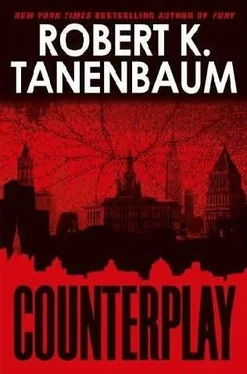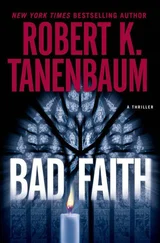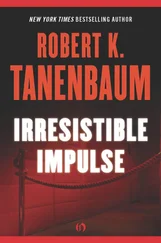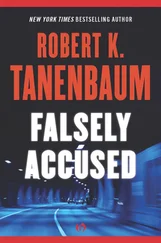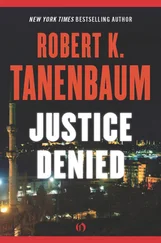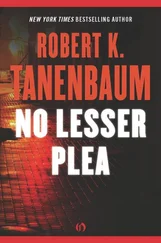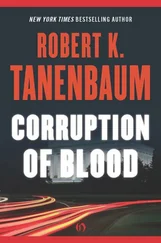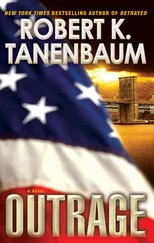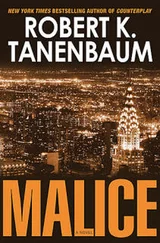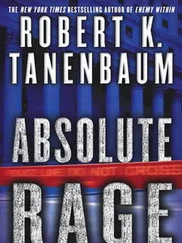Robert Tanenbaum - Counterplay
Здесь есть возможность читать онлайн «Robert Tanenbaum - Counterplay» весь текст электронной книги совершенно бесплатно (целиком полную версию без сокращений). В некоторых случаях можно слушать аудио, скачать через торрент в формате fb2 и присутствует краткое содержание. Жанр: Криминальный детектив, на английском языке. Описание произведения, (предисловие) а так же отзывы посетителей доступны на портале библиотеки ЛибКат.
- Название:Counterplay
- Автор:
- Жанр:
- Год:неизвестен
- ISBN:нет данных
- Рейтинг книги:4 / 5. Голосов: 1
-
Избранное:Добавить в избранное
- Отзывы:
-
Ваша оценка:
- 80
- 1
- 2
- 3
- 4
- 5
Counterplay: краткое содержание, описание и аннотация
Предлагаем к чтению аннотацию, описание, краткое содержание или предисловие (зависит от того, что написал сам автор книги «Counterplay»). Если вы не нашли необходимую информацию о книге — напишите в комментариях, мы постараемся отыскать её.
Counterplay — читать онлайн бесплатно полную книгу (весь текст) целиком
Ниже представлен текст книги, разбитый по страницам. Система сохранения места последней прочитанной страницы, позволяет с удобством читать онлайн бесплатно книгу «Counterplay», без необходимости каждый раз заново искать на чём Вы остановились. Поставьте закладку, и сможете в любой момент перейти на страницу, на которой закончили чтение.
Интервал:
Закладка:
A little further toward the elevators, a frightened young woman huddled against her husband and told an earnest assistant district attorney that she just didn’t think she could face the man who raped her. “I can’t handle having his eyes looking at me again. I’d rather drop the charges.”
Over near the water fountain, a wild-looking vagabond in a tie-dyed shirt shouted that the end was near. A cop moved to silence him.
A bleary-eyed drunk sailed out of the crowd to offer Marlene a business card proclaiming Jimmy Jones Bail Bonds to be the best. “Come on, lady, the faster I give these out,” he complained to Marlene who’d declined, “the sooner I get a drink and can stop this shakin’.”
Every step of the way toward the elevator there seemed to be someone crying, or a lawyer chasing a frightened or sullen client insisting that he “accept the deal or I am out of here,” or bewildered citizens running around with official-looking documents in their hands and lost looks on their faces. “God, sometimes I forget how depressing this place can be,” Marlene said as they stepped on the elevator and hit the button for the eighth floor and the offices of the New York District Attorney.
“You certainly see an interesting slice of the human pie down here,” Kipman remarked somewhat awkwardly, his face turning red. He hadn’t been kissed anywhere by anyone in quite some time, not since before his wife had died, and he was intoxicatedly aware of the lingering presence of Marlene’s perfume.
Marlene smiled up at Kipman, her one good eye sparkling with a bravado she wasn’t really feeling. She’d lost the other eye more than two decades earlier when as an ADA she’d opened a letter bomb intended for Karp, whom she was dating. The injury marked the beginning of what had surprisingly veered from the normal life track of a Catholic schoolgirl raised in Queens, educated at Sacred Heart High School, then college at Smith and finally Yale Law School. Right after law school, she’d entered the DAO, eventually heading the sex crimes unit. Frustrated with the system’s inability to not only mete out true justice, but also its pathetic ineptness at protecting the innocent, her path had deviated away from the practice of law and entered the realm of dispensing street justice.
Whether as the head of a firm providing security for high-profile VIPs or volunteering to take on men who were terrorizing women and ignoring court-issued restraining orders to leave them alone, Marlene had discovered a latent talent for violence. Even the dogs she raised on a farm in Long Island weren’t the usual fare for a Manhattan housewife. No poodles or schnauzers for Marlene, no it was Presa Canarios, massive, potentially ferocious guard dogs that could be trained for bomb, drug, or simply protection duties.
At some point, the lines between protecting the weak and vigilantism had grown increasingly blurred; her response to confrontation more violent. In a sort of last-ditch effort to pull out of the dive into moral oblivion, she’d gone with her daughter, Lucy, to a retreat in Taos, New Mexico, for women suffering from post-traumatic stress syndrome. The retreat had steadied her nerves and left her psyche open to possibility. A possibility realized when she met John Jojola, the police chief of the Taos Pueblo who was investigating the murders of young Indian boys.
She’d liked Jojola right away-from his self-deprecating humor to his air of a man who was comfortable in his own skin. But it had taken some time to realize the depth of him. Jojola wasn’t allowed to talk to her about the details of his people’s beliefs. We are an ancient people-one of the few American Indian tribes still living in the lands of their ancestors, he explained. There are secrets we don’t share with anyone, friend or foe. Just like we don’t teach people our language, Tewa, though Lucy has assimilated enough to almost carry on a conversation. Sorry, it’s not meant to be rude, just sacred.
It was the beginning of Marlene’s return to the world, but not an easy road to travel with her family’s propensity to attract trouble. She’d been forced to call on her violent tendencies again on New Year’s Eve to save her son Zak and help stop terrorists from blowing up Times Square. But she had done it with a clear conscience, quite sure that killing terrorists fell under the heading of protecting the community.
After that, she’d hoped for a respite from danger. But then Fulton had been shot and Kane escaped. She hadn’t needed to hear Fulton’s message from Kane; she knew that the game was on and had been back to packing heat ever since.
And yet, her concerns recently had more to do with her father than Kane’s escape or her husband’s election campaign.
At noon she’d gone to take her father to lunch with the purpose of trying to talk him into moving out of the family home in Queens and into a nice assisted-living community.
He’d been living alone ever since her mother had died earlier that year, and she worried that he wasn’t coming out of his funk. The last years of her mother’s life had been rough. Concetta Ciampi had developed Alzheimer’s and had become increasingly difficult to deal with. Half the time she couldn’t remember Marlene’s name and had taken to walking out of the house and wandering the neighborhood, lost.
Mariano Ciampi had grown increasingly frustrated and frightened by the whole process. The woman he’d been married to for more than sixty years no longer knew who he was most of the time or thought he’d replaced the “real” Mariano. And he no longer recognized her as the woman he loved since meeting her on the boat on the way to the United States from Italy. His frustrations had made him angry, and Marlene had worried that he might physically harm his wife in a fit.
Then came the morning when he called. Her mother, he said, wasn’t breathing. He was afraid that she was dead. She’d arrived to find her father grieving downstairs and her mother lying on her back upstairs, her sightless eyes fixed on the crucifix above her bed. She’d bent over to close her mother’s eyes and noticed the tiny spots that indicated hemorrhaging in the eyes, sometimes an indication of strangulation or smothering.
She’d gone back downstairs and gently questioned her father. He said they’d gone to bed early, like normal, and when he woke up that morning, her body was cold and she wouldn’t respond when he called her name and touched her.
The medical examiner, who knew Marlene and didn’t want to extend the formalities any longer than necessary, did a cursory examination and pronounced the verdict “natural causes.” There’d been a quick burial, a service attended by dozens of people Marlene didn’t know as well as family, then a period of grieving in which she had not allowed herself to entertain the thought that her father might have killed her mother. Gradually the immediate sadness passed, but the question continued to trouble her sleep. Many nights she got up and made her way across Crosby to the loft building on the other side and up to the little art studio Butch had created for her. There she’d paint away into the morning, imagining how to ask her father if he’d murdered the woman he loved.
Using the excuse that she was working on a case, Marlene had questioned another medical examiner to see if there were other explanations for the hemorrhage spots besides murder.
Oh sure, he said. She might have had a stroke or even choked on something…although an autopsy should have revealed it if that was the case.
Marlene had decided then that her mother’s death had been through natural causes. She was wrong to think otherwise of her father, a good and gentle man all of his life, dedicated to his family, and absolutely and madly in love with his wife. But that didn’t answer the problem of what to do with him.
Читать дальшеИнтервал:
Закладка:
Похожие книги на «Counterplay»
Представляем Вашему вниманию похожие книги на «Counterplay» списком для выбора. Мы отобрали схожую по названию и смыслу литературу в надежде предоставить читателям больше вариантов отыскать новые, интересные, ещё непрочитанные произведения.
Обсуждение, отзывы о книге «Counterplay» и просто собственные мнения читателей. Оставьте ваши комментарии, напишите, что Вы думаете о произведении, его смысле или главных героях. Укажите что конкретно понравилось, а что нет, и почему Вы так считаете.
